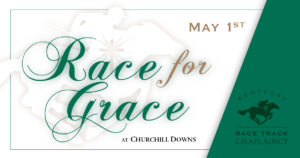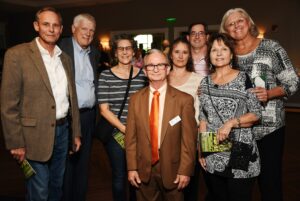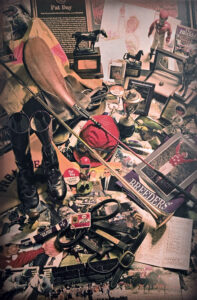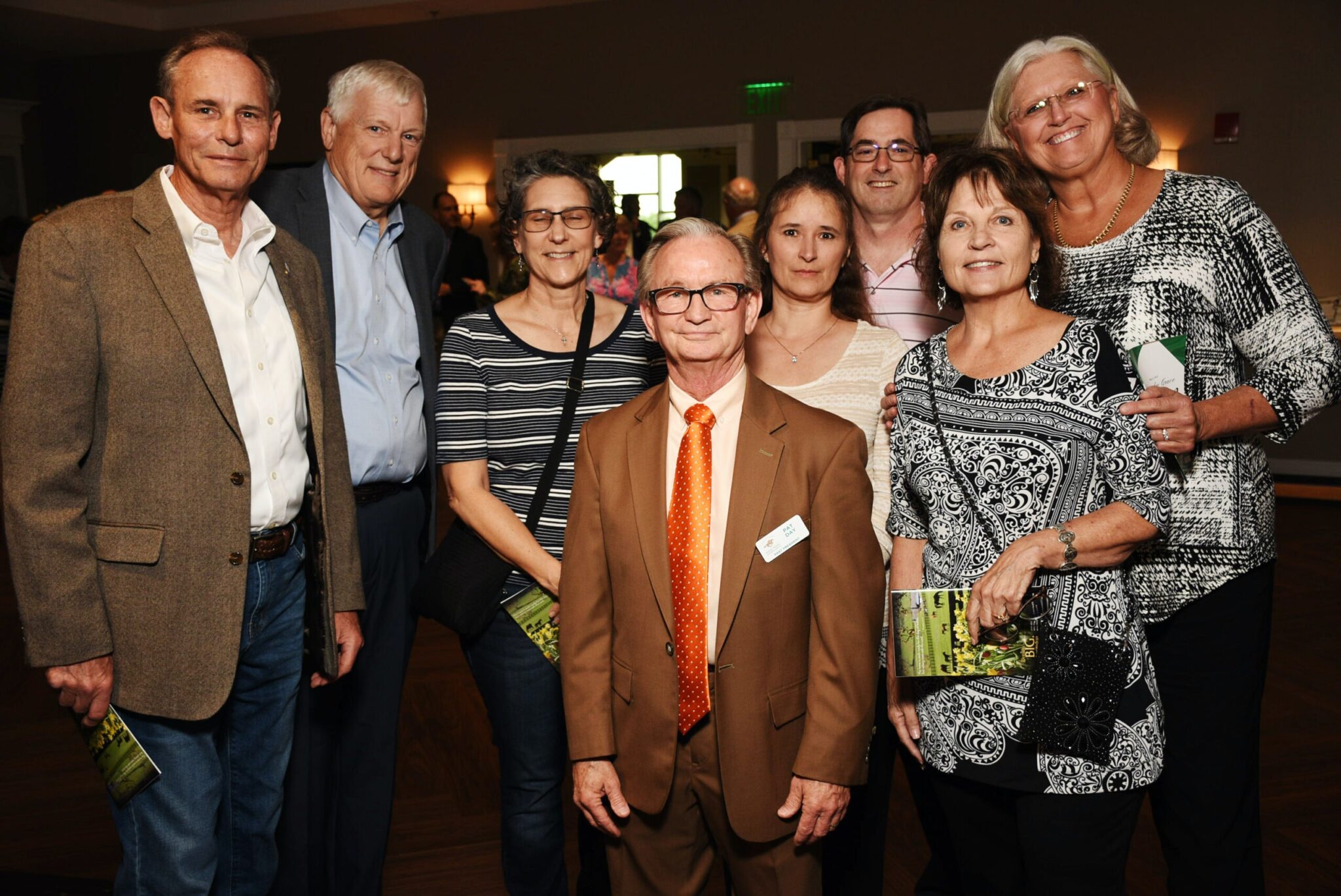A Race Toward a Calling
Writer / Kevin Gibson
Photography Provided
It was a summer day in 1973 at Prescott Downs, a small racetrack about 100 miles north of Phoenix, and a young rider found himself in the lead. It was his first race ever as a jockey.
The horse had leapt to the front as soon as the gates had opened, and there it stayed, speeding around the dirt track toward an awaiting finish line. As that finish line came into view, victory appeared imminent.
“And then another horse came and got me,” Pat Day says, now a horse racing hall of famer. The name of the jockey who tracked down Day’s horse that day was Lyle Murray, whom Day described as a “journeyman jockey.” The two would soon become good friends.
“He said, ‘There was no way I could let you win your first start,’” Day says. “’You’ve got to get some experience first.’”
Two weeks later, he claimed that first win – it was the first of 8,803 wins in his storied career, which included winning the 1992 Kentucky Derby aboard Lil E. Tee and four Eclipse Awards, given each year to the sport’s outstanding jockey.
The Colorado-born Day retired in 2005, but he didn’t really leave racing. Instead, he remains closely affiliated with the Kentucky Racetrack Chaplaincy at Churchill Downs. In 2016, he was named to the Kentucky Horse Racing Commission. But ask him about his four-decade-plus-career which took him all over the country and beyond and Day seemingly conjures memories and dates effortlessly. That skill may be rooted in Day’s gratitude that his career even got past its first decade.
A change in course
“I had success almost immediately,” Day says. “I believe God had endowed me with remarkable talent and ability, and my steps were divinely guided. I had a gift. But my attitude was not the best.”
In 1982, Day earned his first ever honor as the nation’s winningest jockey, an honor secured with a victory at Delta Downs aboard a horse called Dana’s Woof Woof after he chartered a plane to the track on Dec. 31 in attempt to top Angel Cordero Jr. for the title. Day was the top jockey again in 1983, and he was fast becoming a star in the sport at age 30. As a result, Day decided it was a time to celebrate – and the celebration was ongoing.
“My mindset at that time is you’ve got to party, party,” he says. “And I did.”
But it didn’t take him long to discover that his stardom hadn’t fulfilled him the way he thought it would. In 1984, he fell on his face in a hotel room and the realization hit him that changes were needed to continue forward.
“When I came out of my drunken stupor, I took inventory,” Day says. “I thought I would never have another bad day, but I learned partying wasn’t satisfying. I believe the Lord let me get to the top of the mountain and there was nothing there. Reaching that level of success and realizing, ‘Whoa, wait a minute, this isn’t all it was supposed to be.’ Life hadn’t changed.”
 This is when he embraced Christianity and what led to him being not just a champion in the sport, but also a champion of the track chaplaincy. Another Eclipse Award followed in 1984, then three more in 1986, 1990 and 1991. Day soared as a jockey for four decades, ending his career with an impressive 23 top-three finishes in his Triple Crown career, including nine victories in those races. He also won 12 Breeders’ Cup races during his sparkling career.
This is when he embraced Christianity and what led to him being not just a champion in the sport, but also a champion of the track chaplaincy. Another Eclipse Award followed in 1984, then three more in 1986, 1990 and 1991. Day soared as a jockey for four decades, ending his career with an impressive 23 top-three finishes in his Triple Crown career, including nine victories in those races. He also won 12 Breeders’ Cup races during his sparkling career.
He became involved in the Kentucky Race Track Chaplaincy shortly after 1984, when Churchill Downs had only part-time chaplain service. It didn’t take long before Day, fellow jockey Larry Meloncon and a few others realized there was a need for full-time chaplaincy. By this time, thoroughbreds were lodging at the track full-time, which meant there were backside workers at the track daily who needed the service.
“The thought was that if they can’t get off-track and go to the church of their choice, let’s take church to them,” Day said.
A full-time chaplain was subsequently hired. As the word spread, the popularity of the service, which is to provide ministry, emotional support, counseling – or anything, really – to any and all involved at Churchill Downs when they needed, only grew. Non-denominational worship services were held in a track rec hall, but it wasn’t long before services were standing room only.
Representatives of the chaplaincy then approached track management about supporting a dedicated building for the chaplaincy. Churchill Downs allocated space and helped the chaplaincy raise money, and Christ Chapel was built on-site.
“It’s a ministry of presence,” Day says. “The people that care for the horses are the primary focal point for the ministry. Our chaplains are there walking through the barn area as a visible presence during training hours and making themselves available after. We want to offer them hope.”
The Monday before the Kentucky Derby each year, the Kentucky Racetrack Chaplaincy – which has other on-site chaplaincies at tracks around the state – holds the Race for Grace, the chaplaincy’s sole fundraiser. Heading into its 21st year, it’s a dinner and auction which features a guest speaker. The planned speaker for 2023 is trainer D. Wayne Lukas.
“It’s a great way to kick off derby week,” Day says, adding that the goal is not just to raise money to fund the chaplaincy, but also to educate attendees so that they might want to become more involved.
Staying Put
Day’s work with the chaplaincy is one thing that keeps him in Louisville, but there are others. He and his wife, Sheila, also want to be near their daughter, Irene, who went to school here and has remained. With Louisville providing a sort of hub city during his racing career when Day was traveling almost constantly to various tracks for meets, it gradually came to feel like home, he said.
When the time came to settle into a city, he and Sheila prayed over where that should be. “This is where the Lord led us to settle,” he says. “God knew exactly what he was doing when he brought us to Louisville.”
The couple, after first locating here in 1980 shortly after they were married, decided to make it a permanent home in 1991, in part because Irene was enrolled at Christian Academy. The original plan had been to move to Chicago to be near Arlington Park, another race track. The Days ultimately settled into a home in Lake Forest, where they’ve been ever since. Unless Irene and her husband move to a new city, expect the legendary jockey to remain.
another race track. The Days ultimately settled into a home in Lake Forest, where they’ve been ever since. Unless Irene and her husband move to a new city, expect the legendary jockey to remain.
“We’re very comfortable where we’re at,” Day says. “It’s got everything the big cities have, just maybe in smaller quantity. We have great neighbors. We enjoy Louisville and all that it has to offer.”






Comments 1
Larry Melancon’s cousin wish could have known him better I was younger when he left to race read much about him and you one day hopefully I can go see the chapel I could use some god was on bad things all my life been drug free for forty years thanks to my beautiful son forty one years old with cerebral palsy he save my life but I’m still struggling with alcohol but pray every day and I know he died for our sins I ask him for forgiveness every day I wish I could have met y’all and known Larry peace and love